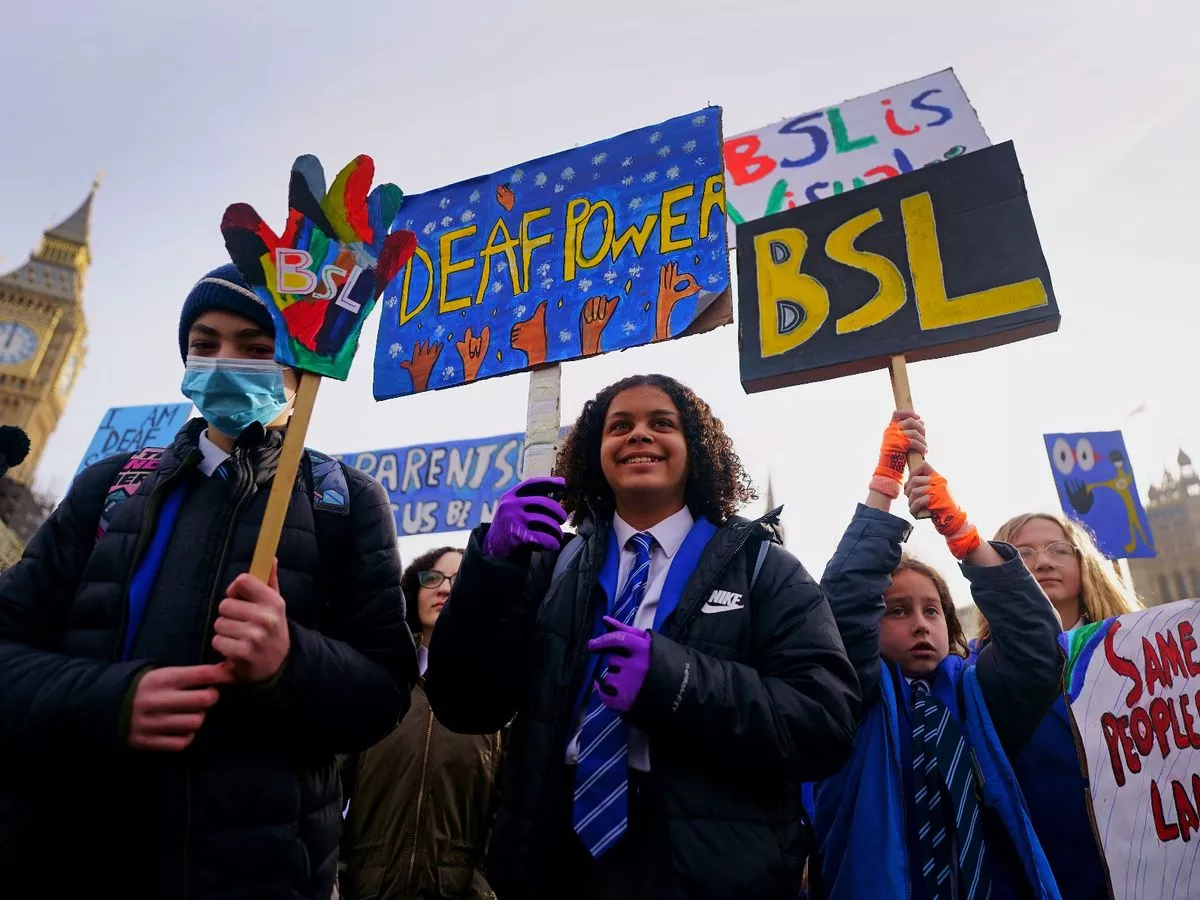By Ruth Mosalski
Copyright walesonline

A new law which will help deaf people in Wales is making its way through the Senedd. The British Sign Language (Wales) Bill will mean guidance and a strategy about the use of British Sign Language (BSL) and mean certain public bodies will have to draw up plans about how they will promote and facilitate use of BSL. BSL is used by between 5,600 and 7,300 people in Wales, and this law will make them “be seen as the solution rather than as a problem”. It will mean “lives and aspirations of deaf signers have equal value in Wales” according to campaigners. The British Deaf Association say this law would show “respect for a specific cultural minority within Wales and the language that we use. It will start to bring about a transformation in the lives of deaf signers”. We recently featured the story of one deaf woman in Wales. BSL is a language that uses gestures, handshapes, facial expressions and body language to convey meaning and which, in its tactile forms, can also use touch. The aim of the bill is to promote the use of BSL in Wales and imposes various new duties on Welsh ministers and on certain public bodies. There are five main parts to the law: This bill would give BSL users in Wales legal recognition of their distinct language and cultural identity, and would bring Wales in line with other UK Nations who have BSL legislation. The RNID say the law is needed to “address the significant and persistent inequality experienced by BSL users in Wales” as people who rely on BSL face “significant barriers” in everyday life including accessing healthcare, education and within their local council. The British Deaf Association say the law “will enable deaf signers to be seen as the solution rather than as a problem”. For our free daily briefing on the biggest issues facing the nation, sign up to the Wales Matters newsletter here “Historically, deaf signers have been made to feel like a burden to public bodies in our country”. “Sign Language legislation is important to Welsh signers. It is a formal acknowledgement of and a sign of respect for signing communities as a distinct part of Welsh life. It recognises Welsh signers as a linguistic minority group with our own distinct culture and aspirations”. In its response to the law, going through its first stage of formal scrutiny in the Senedd’s equality committee, the British Deaf Association say that deaf people have to remain involved in the creation of the law throughout, because in Scotland, a plan was “edited down” within the civil service. The law, which was suggested by Conservative backbench MS Mark Isherwood, is being discussed at the Senedd’s equality committee in September 2025. There are four official stages any new law has to pass through, and this is stage one. The fourth stage is when there is a final vote in the Senedd.



